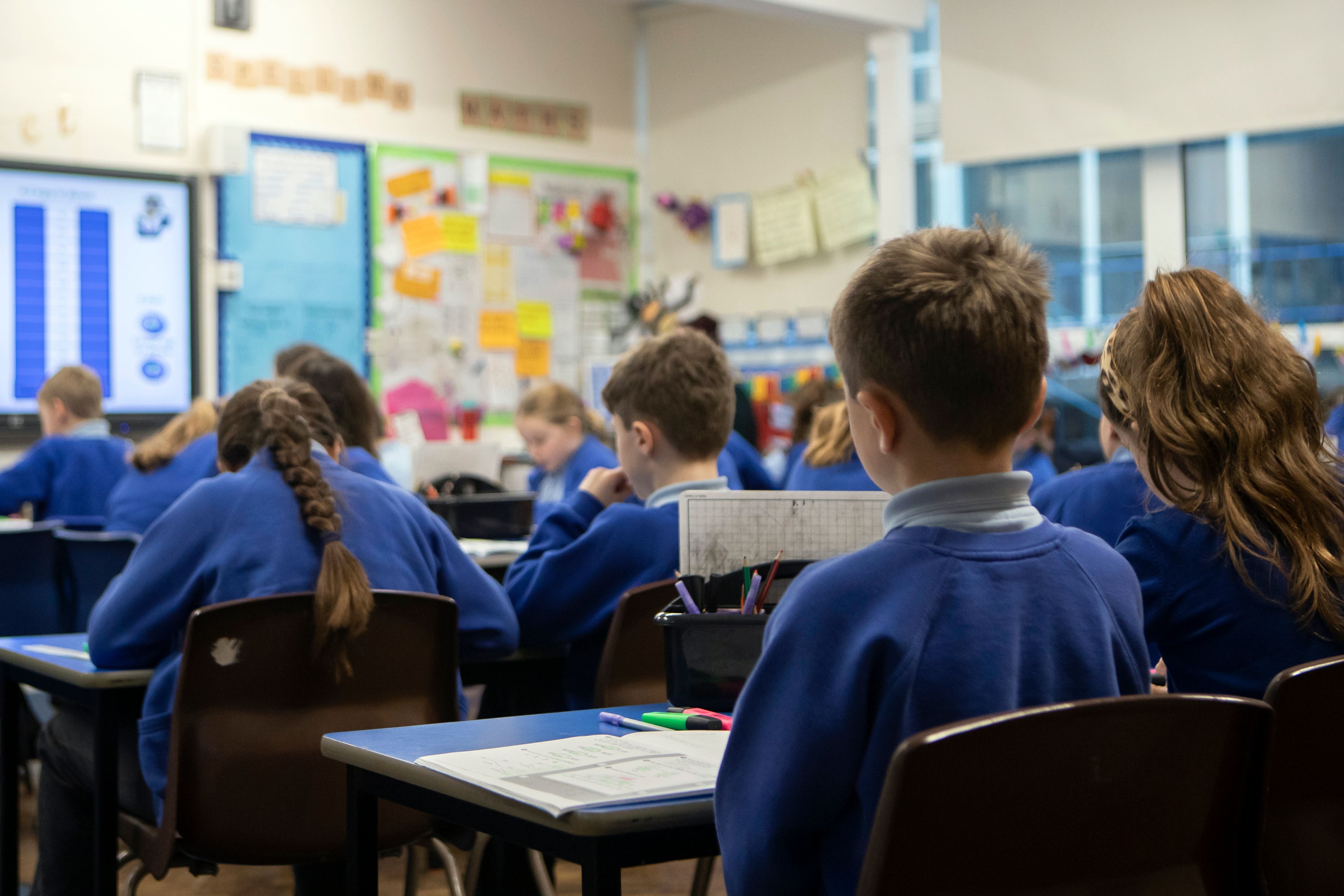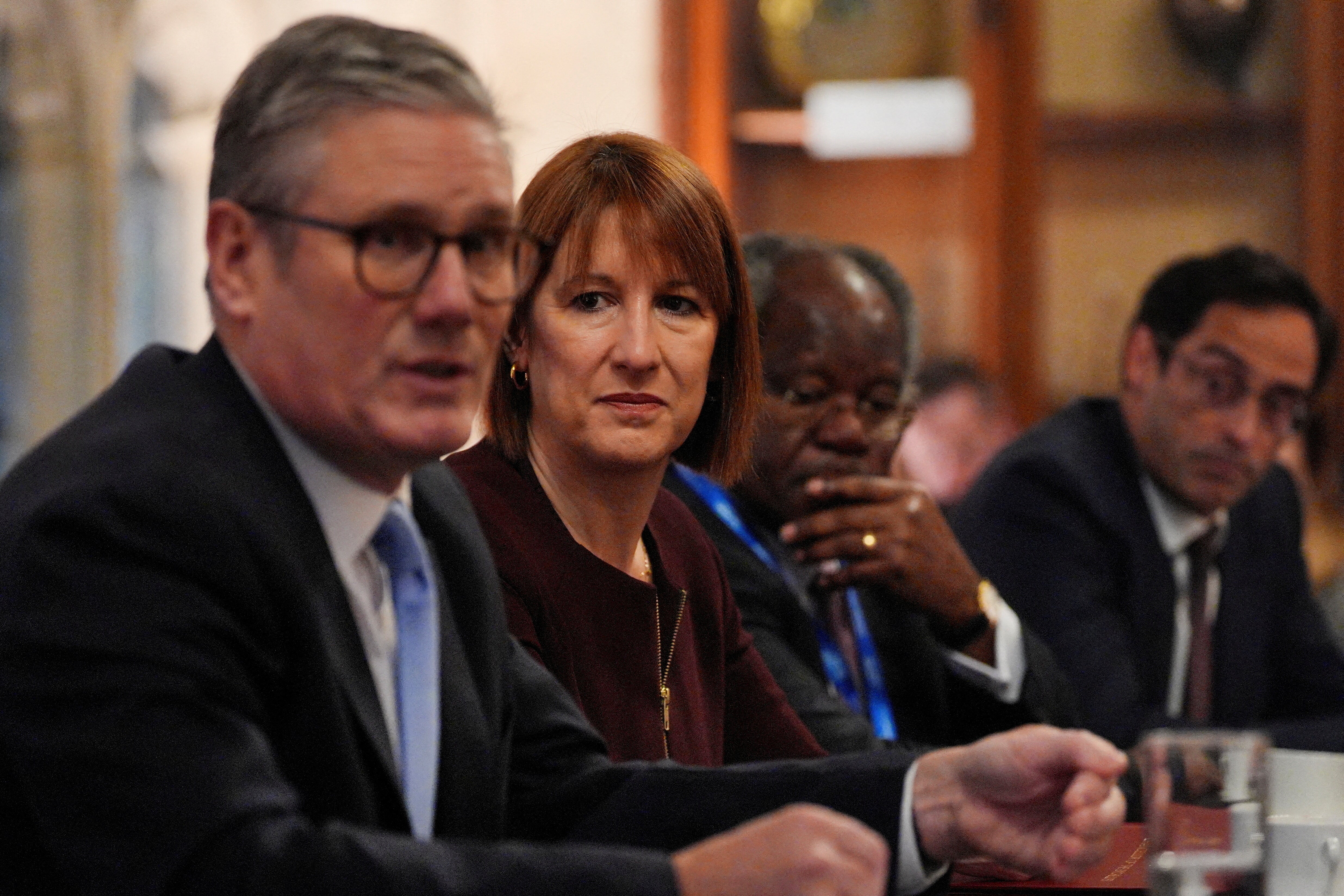Private schools warn sector could ‘fall apart’ if hit by national insurance and VAT tax blow
Independent school leaders fear sector will be hit twice in Wednesday’s Budget

Your support helps us to tell the story
From reproductive rights to climate change to Big Tech, The Independent is on the ground when the story is developing. Whether it's investigating the financials of Elon Musk's pro-Trump PAC or producing our latest documentary, 'The A Word', which shines a light on the American women fighting for reproductive rights, we know how important it is to parse out the facts from the messaging.
At such a critical moment in US history, we need reporters on the ground. Your donation allows us to keep sending journalists to speak to both sides of the story.
The Independent is trusted by Americans across the entire political spectrum. And unlike many other quality news outlets, we choose not to lock Americans out of our reporting and analysis with paywalls. We believe quality journalism should be available to everyone, paid for by those who can afford it.
Your support makes all the difference.Private school parents could face a further fee hike if a national insurance increase is announced in the Budget in what has been called an “extra tax” on top of the government’s controversial new VAT policy.
With one warning that “there is only so far that the system can be squeezed before it starts to fall apart”, independent school leaders fear the sector will be hit twice – first, by Labour’s removal of private schools’ 20 per cent VAT exemption, which will start in January, and now, by a potential rise in employers’ national insurance contributions, which the chancellor has not ruled out ahead of her first Budget on 30 October.
Headteachers of smaller, specialist private schools say they have little room in already-squeezed budgets to make cuts, leaving them little option but to hike fees to cover VAT charges. They fear they may need to raise fees even higher if employers’ national insurance contributions are increased.
Rachel Reeves is set to increase employers’ national insurance to help fund the NHS and balance the government’s books, reports suggest. The current national insurance rate paid by employers is 13.8 per cent, with the chancellor expected to increase this by between one and two percentage points.
David Woodgate, chief executive of the Independent Schools Bursars Association (ISBA), has described any national insurance hike as an “extra tax” on private schools and, in turn, parents with children who attend them.

Mr Woodgate told The Independent: “Any rise in national insurance employer contributions would have to be funded by independent schools, which would not qualify for any funding offered to state schools to cover the rise. This would be an extra tax that schools would have no choice but to pass on to parents and also risks being an additional in-year tax, further stretching budgets set before the general election was even called.”
The chancellor is set to increase the tax by up to 2 per cent, as well as cutting the earnings threshold at which businesses start making national insurance contributions, The Times reported. The combined measures will raise about £20bn and represent the biggest tax rise in Labour’s first budget in 15 years.
A 1 per cent increase in the Class 1 rate of national insurance for employers could raise £8.45bn over the 2025 to 2026 tax year, and a 2 per cent hike could raise £16.9bn, according to data compiled by HMRC and EY – which would go some way to closing the £22bn “black hole” that Ms Reeves said had been inherited by the previous Conservative government, as well as help fund spending promises.
According to guidance from the Department for Education, staff pay is the most expensive cost in a school budget, representing more than 70 per cent of expenditure.
A 1 or 2 per cent increase in national insurance for employers could increase school budgets by more than 0.7 per cent or 1.4 per cent, respectively. If schools are unable to make cuts, these costs are set to be put on parents in the form of a fee hike.
Christine Cuniffe, the principal of LVS Ascot in Berkshire, warned: “Any increases to costs such as a rise in national insurance will inevitably have an impact on fee structures across the sector.”
Diarmid Mackenzie, the chair of governors at Sands School in Devon, who has been working with many other independent schools on this issue, said further fee increases caused by a national insurance hike would also increase the amount of VAT parents pay on fees.
Mr Mackenzie said: “If employer national insurance contributions are increased, these costs go directly onto a school’s staffing costs. A 2 per cent increase in employers’ national insurance will result in a direct 2 per cent increase in staffing costs.
“There’s no way for most schools to cover these costs without a further increase in fees, and every time fees go up, that increases the VAT that parents will have to pay as well.”
In a policy that has drawn much criticism and is facing ongoing backlash from the sector, from January, the government will remove independent schools’ VAT exemption and business rates relief in a move Labour says will fund 6,500 new teachers for state schools.
There has also been speculation that the government was considering introducing national insurance on employer pension contributions as a way of raising additional revenue, with the Institute for Fiscal Studies (IFS) calculating that this could raise around £17bn per year if taxed at the same 13.8 per cent rate.
Mr Woodgate said this move would threaten more withdrawals from the Teachers’ Pension Scheme (TPS) because it would “become increasingly unaffordable for independent schools”.
Mr Mackenzie warned: “Independent schools are already under immense financial pressures. TPS contributions went up 5 points in April to over 28 per cent of salaries. Now we're having to put VAT on our fees, and deal with a 400 per cent increase in business rates for many this April, together with around 20 per cent inflation since 2021. Between them, in cash terms, that adds up to a 50 per cent increase in costs over four years.
“Most small schools don't make a significant surplus or profit, and most don't have any sources of income other than fees, so there's no option but to pass these costs on to parents. But the families that use small independent schools aren't especially wealthy either. There's only so far that the system can be squeezed before it starts to fall apart.”
A government spokesperson said: “We want to ensure all children have the best chance in life to succeed. Ending tax breaks on private schools will help to raise the revenue needed to fund our education priorities for next year.”
Join our commenting forum
Join thought-provoking conversations, follow other Independent readers and see their replies
Comments